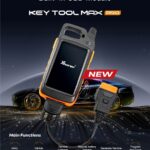Early career programs are pivotal for academics aiming to establish themselves as leaders in research and education. These prestigious opportunities, such as the National Science Foundation’s (NSF) Faculty Early Career Development (CAREER) Program, offer not just funding, but also recognition and a platform to propel your academic trajectory. Understanding When To Apply To Early Career Programs is as crucial as crafting a compelling proposal. This guide delves into the optimal timing and strategic considerations for your application, ensuring you are best positioned for success.
Understanding Early Career Programs: NSF CAREER and PECASE
The NSF CAREER program stands as a cornerstone for early-career faculty. It’s designed to support individuals who demonstrate the potential to be academic role models, seamlessly integrating research and education within their institutions. The program emphasizes building a robust foundation for a lifetime of leadership. NSF actively encourages applications from diverse candidates, particularly women, underrepresented minorities, and persons with disabilities.
Building upon the CAREER program’s prestige, the Presidential Early Career Awards for Scientists and Engineers (PECASE) elevates recognition to the highest level. PECASE awards are bestowed upon the most exceptional CAREER awardees, nominated by the NSF and selected by the White House Office of Science and Technology Policy. Selection for PECASE hinges on three critical criteria: pioneering research, impactful community service through scientific leadership and outreach, and a demonstrable commitment to STEM equity, diversity, accessibility, and inclusion. Importantly, individuals cannot directly apply for PECASE; it is an honor bestowed based on outstanding achievement within the CAREER framework.
The Crucial Question: When is the Right Time to Apply?
While there isn’t a single date that universally dictates the best time to apply to early career programs, understanding typical academic cycles and aligning your readiness with program deadlines is paramount. “When to apply to early career programs” is less about a specific month and more about strategic preparation and aligning with funding cycles.
Typical Application Windows
Most early career programs in academia, including NSF CAREER, operate on annual cycles. Deadlines are typically announced well in advance, often a year prior to the funding period. For NSF CAREER, deadlines vary by directorate but generally fall within July. It’s essential to consult the official program solicitation on the NSF website for the most accurate and up-to-date deadlines for your specific field. Planning your application timeline around these established windows is the first step in determining when to apply.
Key Factors Influencing Your Application Timeline
Determining the ideal “when to apply to early career programs” moment involves several personal and professional factors:
-
Eligibility Requirements: Ensure you meet all eligibility criteria, including the timeframe since receiving your terminal degree and your current faculty status. Applying too early or too late can disqualify your application.
-
Research Project Readiness: A compelling application hinges on a well-defined and innovative research project. Applying when your research is sufficiently developed to present a strong proposal, with preliminary data and a clear research plan, is crucial. Rushing an application before your project is mature can weaken your chances.
-
Proposal Preparation Time: Crafting a competitive early career program proposal is a significant undertaking. It requires substantial time for:
- Research: Solidifying your research idea and methodology.
- Writing: Articulating your research plan, educational integration, and broader impacts persuasively.
- Review and Feedback: Seeking feedback from mentors and colleagues to refine your proposal.
- Institutional Processes: Navigating internal review processes and obtaining necessary institutional approvals.
Underestimating the time needed for thorough proposal preparation is a common pitfall. Start early – ideally several months before the deadline – to ensure a polished and competitive submission.
-
Personal Circumstances: Consider your personal and professional commitments. Applying during a less demanding period can allow you to dedicate the necessary focus and energy to the application process.
Maximizing Your Application Timing for Success
Strategically deciding “when to apply to early career programs” can significantly impact your application’s success.
- Start Early, Plan Ahead: Begin thinking about early career programs and potential research directions well in advance of eligibility windows. This allows ample time for research development, idea refinement, and proposal preparation.
- Seek Mentorship: Engage with mentors and senior colleagues who have experience with early career programs. They can provide invaluable guidance on proposal development and timing strategies. Discussing your readiness with mentors can help you gauge when you are truly prepared to submit a strong application.
- Align with Institutional Support: Understand your institution’s internal deadlines and support resources for grant applications. Leveraging these resources and adhering to internal timelines ensures a smoother application process.
- Review Successful Examples: Analyze successful proposals from your field (if available) to understand the level of detail, scope, and presentation expected. This can inform your preparation timeline and help you assess when your proposal is competitive.
Conclusion: Timing Your Leap to Academic Leadership
Choosing “when to apply to early career programs” is a strategic decision that blends awareness of program timelines with a realistic assessment of your research and proposal readiness. By understanding the annual cycles, factoring in preparation time, and seeking guidance, you can optimize your application timing. Early career programs like NSF CAREER and the prestigious PECASE award are springboards for academic leadership. Strategic timing, coupled with a strong proposal, is your pathway to leveraging these opportunities and accelerating your impact in research and education. Remember to consult the official NSF CAREER program website for the most current guidelines and deadlines to pinpoint your optimal application window.
